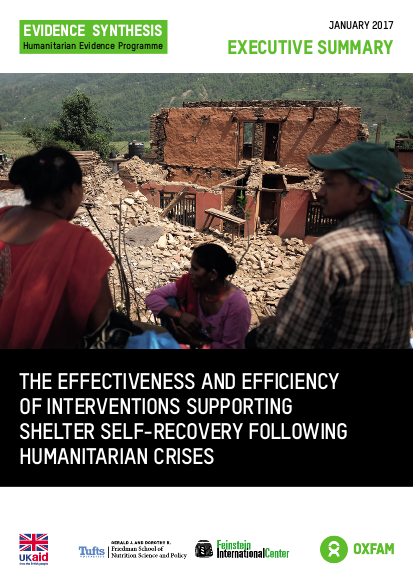
This is the executive summary of an independent evidence synthesis commissioned by the Humanitarian Evidence Programme – a partnership between Oxfam GB and Feinstein International Center at the Friedman School of Nutrition Science and Policy, Tufts University. It was funded by aid from the United Kingdom (UK) government through the Humanitarian Innovation and Evidence Programme at the Department for International Development.
Shelter is critical to the survival of people affected by humanitarian crises as it provides safety and security, protection from the climate and resistance to ill health and disease. Having somewhere safe, secure and healthy to live, with access to livelihood opportunities, healthcare and education is also fundamental to sustaining family and community life during post-crisis recovery and reconstruction or displacement, return and resettlement. But what effects do humanitarian interventions that support affected populations’ own shelter self-recovery processes have on household-level outcomes following a crisis? And what factors have helped or hindered the implementation of such interventions? The evidence synthesis represents the first ever attempt to systematically review the existing evidence for an answer.
